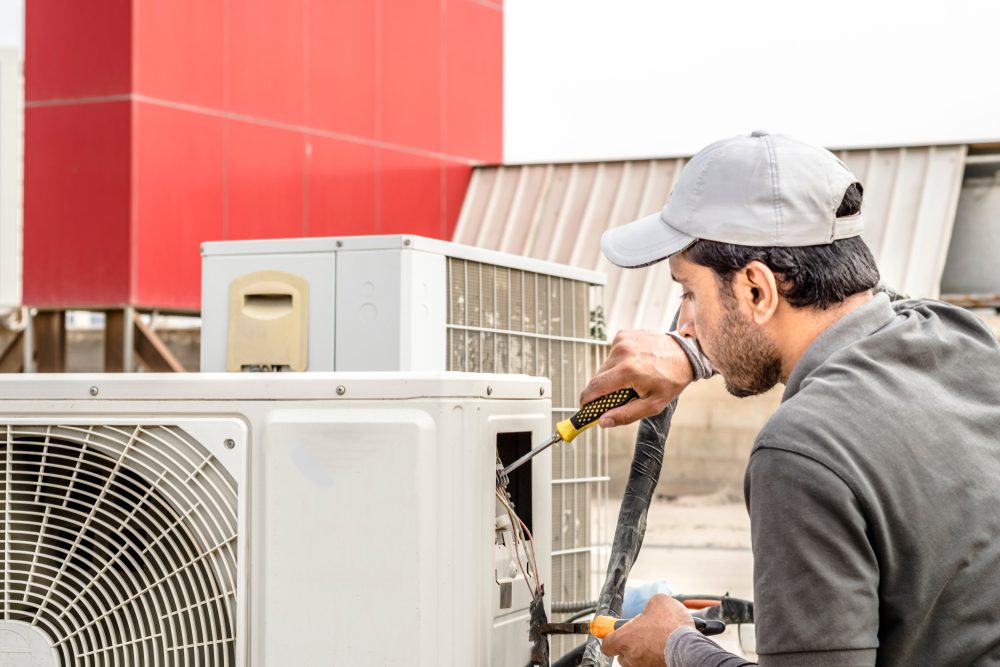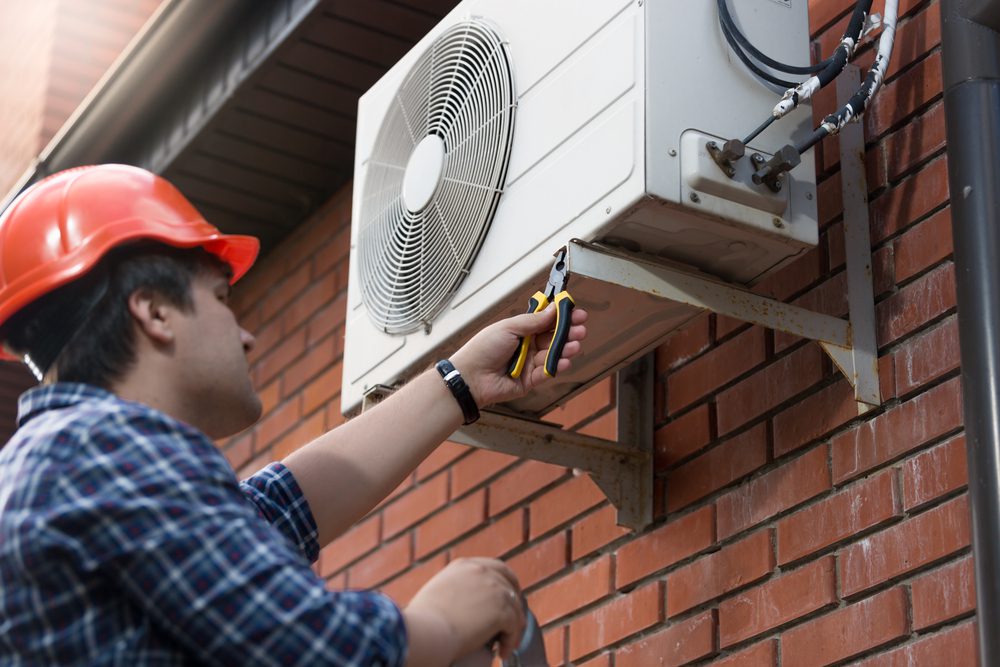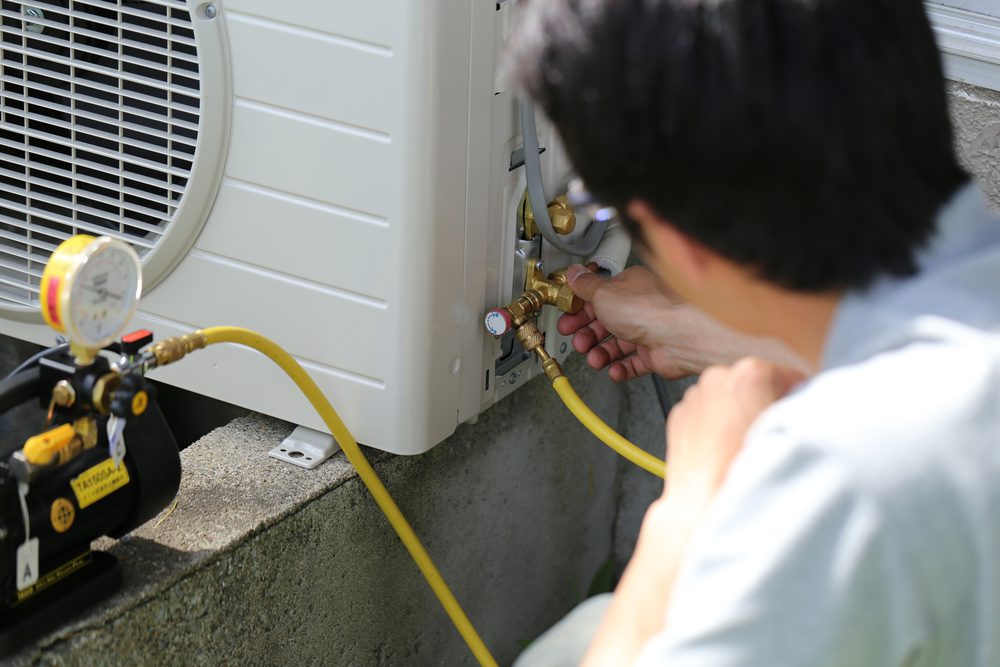
As an ordinary homeowner, you may feel intimidated about purchasing a new air conditioning unit. You may be unfamiliar with the process of sizing an air conditioner for your house. Calculating the air conditioner size you need can seem like a strenuous math equation, leaving you wondering where to begin. And if you’re replacing a broken AC unit, you may be pressed for time.
Frankly, there’s a large variety of factors to consider when purchasing the right air conditioner for your home. If you accidentally purchase an air conditioner that is too small, the system may not effectively cool your space. On the other hand, installing an overly large air conditioner will increase the total cost of your utility bills. Finding the perfect unit for your home takes some evaluation, but we promise, it isn’t as hard as it seems. We’ve put together a simple step-by-step guide to help you determine the best size air conditioner for your home.
 What does BTU Mean?
What does BTU Mean?
BTU is an acronym that stands for British Thermal Unit. This is a measurement system that estimates the amount of energy your unit can process to cool your space. Technically, it is the amount of energy needed to raise the temperature of one pound of water by one degree Fahrenheit at sea level.
On the other hand, British Thermal Units Per Hour (BTUh) refers to the number of BTUs of energy that are removed by your air conditioning in one hour. British Thermal Units are most frequently referenced when discussing what size air conditioner you need. By determining the square footage of your home, you’re able to estimate how many British Thermal Units your air conditioner should have.
What is a Ton (Tonnage)?
While British Thermal Units applies to the measurement of heat energy, a ton, also known as tonnage, refers to the total amount of heat an air conditioner unit can remove from your home within one hour. British Thermal Units Per Hour and tons both determine the same thing and may be used interchangeably to identify the air conditioner’s cooling capacity over an hour timeframe,
Tonnage ratings are commonly specified in increments of .5 tons. This means that residential air conditioner units are usually rated as 1.5, 2, 2.5, 3, 3.5, 4, 4.5, or 5 ton units. There are many variables that may affect the amount of tons you’ll need. Most homes will need a ton for every 400 to 1,000 square meters. Be wary though; an air conditioner with a high tonnage rating will cost more to operate. When deciding on an air conditioner size for your home, we recommend buying a model that is EnergyStar certified to save money on monthly utility bills.
Read More: Signs of a Las Leak in Your Home
 Average Cooling Capacity
Average Cooling Capacity
The metrics British Thermal Units Per Hour (BTUh) and tonnage (ton) are utilized to determine an air conditioner’s cooling capacity over an hour. One ton of cooling capacity equates to 12,000 BTUh. For homeowners, residential air conditioners usually range from 1.5 to 5 tons or, 18,000 – 60,000 BTUh.
A system that exceeds this range can be utilized for a light commercial application. Light commercial construction refers to smaller business facilities including offices, free-standing retail buildings, restaurants, and banks.
Calculate Your HVAC Unit Size
If you’re wondering what size air conditioner you need for your house, there are many variables to consider. We recommend completing a Manual J calculation for your home. A Manual J calculation is a load calculation method that estimates the amount of heating and cooling BTU’s needed for the whole house. A Manual J calculation helps you determine exactly how many BTUs of heating and cooling are required for your home.
There are multiple ways to go about this. You can contact an HVAC professional or energy auditor to inspect your home and make the calculations for you. You can also calculate these variables manually through a Manual J calculator. Let’s take a look at all factors to examine during your air conditioning calculations.
- Square Footage
- Ceiling Height
- Climate Zone
- Windows/Doors
- Ductwork
- Insulation
- Sun Exposure
- Family Size
- Heat-Generating Appliances
Read More: Why Is My Furnace Blowing Cold Air?
What is a SEER Rating?
SEER is an acronym for a metric called Seasonal Energy Efficiency Ratio. This metric refers to the energy efficiency of an air conditioning unit. A SEER rating is calculated by dividing the total quantity of cold air produced by a central air conditioning system throughout the summer season by the total amount of electricity that is utilized. This is an important factor in helping homeowners make the right choice for their air conditioning size. Two AC units with the same cooling capacity may have completely different SEER ratings. That’s why it’s important to check the SEER ratings of your air conditioning unit.
If an air conditioning unit has earned an ENERGY STAR® certification, this means it has a higher SEER rating and uses at least 8% less energy than traditional units. The minimum standard SEER for air conditioners is 13, however, the latest energy-efficient air conditioners for sale on the market feature SEER ratings that vary from 13 to 21. The efficiency of your system also will vary based on the size of your home, current ductwork, and more.
 Air Conditioning Repair & Installation Services in Virginia
Air Conditioning Repair & Installation Services in Virginia
Although we’ve given you an easy guide to determining what air conditioner size works best for you, we understand other types of AC issues occur that may need immediate solutions. Our certified HVAC technicians and plumbers provide reliable and safe air conditioning repair, tune-up, and installation services to homes in areas of Virginia such as Centreville, Arlington, Alexandria, and Reston. Give our team a call by phone at (703) 543-9649 to receive assistance with an HVAC issue.
Read More: Ordinary Causes of Low Airflow From a Gas Furnace

